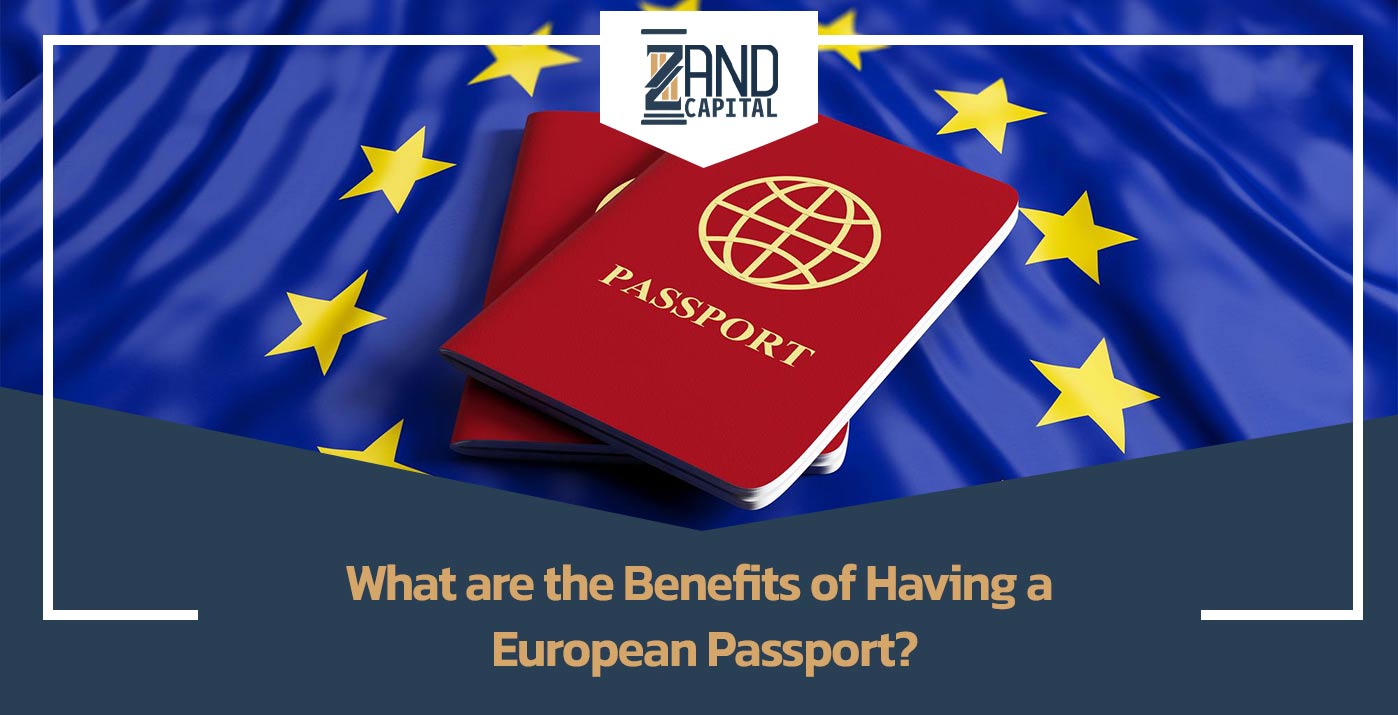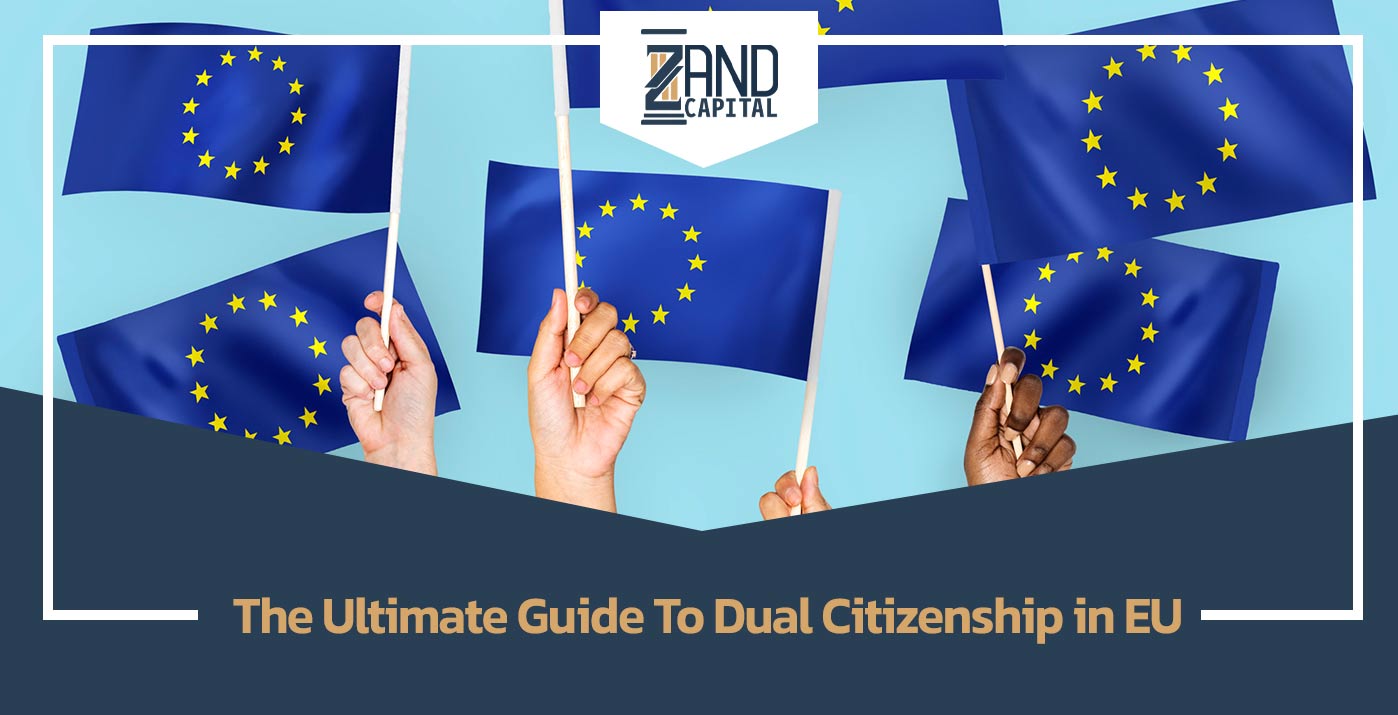What You Need To Know About Becoming An EU Citizen
 Auther:
ZandCapital
Auther:
ZandCapital
Why Become an EU Citizen?
Are you dreaming of living and working in Europe? Or perhaps you want to travel freely across the continent without any restrictions. Whatever your reasons may be, becoming an EU citizen can open doors to a world of opportunities. But how do you become one? In this blog post, we’ll guide you through everything you need to know about getting an EU passport and citizenship. From eligibility requirements to application processes, we’ve got it all covered for you! So let’s dive into the details and make your European dream come true!
The Eligibility Requirements
To become an EU citizen, there are certain eligibility requirements that you must meet. The requirements may vary depending on the country in which you intend to acquire citizenship. Nonetheless, there are some general conditions that apply across all countries.
Firstly, you need to be at least 18 years old to apply for citizenship in most EU nations. Secondly, you should have lived legally and continuously within the country’s borders for a minimum period of time before applying – this varies from two to five years.
Another requirement is that you must not have any criminal record or pending charges against your name when applying for citizenship. This means that if you have been convicted of any serious crime or involved in terrorist activities, chances are high that your application will be rejected. Additionally, it is essential to prove proficiency in the official language(s) of the country where you plan on obtaining citizenship. Language tests such as TOEFL and IELTS may be necessary depending on the nation’s policies.
Demonstrating financial stability through proof of employment or sufficient funds is crucial while applying for EU citizenship via naturalization or investment programs. Meeting these eligibility requirements ensures a hassle-free experience while acquiring European Union Citizenship.
Through your descent/ancestry, you can become a European citizen
One way to become an EU citizen is through your descent or ancestry. If you have parents, grandparents, or even great-grandparents who were citizens of an EU country, then you may be eligible for citizenship as well. This process is also known as jus sanguinis (right of blood). To prove your eligibility for citizenship through descent/ancestry, you will need to gather the necessary documents such as birth certificates and passports of your ancestors. These documents will help establish a clear line of lineage from yourself back to your ancestor who was a citizen.
It’s important to note that each EU country has its own requirements and rules when it comes to citizenship by descent/ancestry. Some countries allow multiple generations removed from their citizens while others only allow up to two generations. Additionally, some countries require proof that the ancestor maintained ties with the home country while others do not require this proof at all.
Once you have collected all the required documents and determined which country’s laws apply in your case, you can start the application process for European citizenship through descent/ancestry. It may take several months or even years before a decision on your application is made. Obtaining European citizenship through descent/ancestry can be a complex process but could offer many benefits including access to work and study opportunities throughout Europe without needing visas or permits.
Citizenship-by-Investment: How to become an EU citizen
One way to become an EU citizen is through citizenship-by-investment, also known as economic citizenship. This option allows individuals or families to invest in a specific country’s economy and obtain citizenship in return. Different EU countries have different requirements for their citizenship-by-investment programs. Some require real estate investments while others allow investments in businesses or government bonds.
For example, Cyprus offers a popular program that requires an investment of at least €2 million in real estate, government bonds, or other approved projects. The applicant must also have a clean criminal record and not be listed on any sanctions list. Malta has another program that requires a contribution of at least €650,000 to the National Development and Social Fund plus an investment in property worth at least €350,000.
It’s important to note that these programs can come with hefty price tags beyond just the required investment amount. Applicants may need to pay additional fees for due diligence checks and processing costs. Furthermore, it’s essential to ensure that the chosen program meets all legal requirements and has a good reputation before investing any money. Consulting with immigration lawyers or reputable agencies can help navigate this process smoothly.
Naturalize as an EU citizen
Becoming an EU citizen through naturalization is a popular option for those who have lived in an EU country for a certain period of time. Each member state has its own specific requirements, but there are some general criteria that must be met. To begin with, the applicant must have legally resided in the country for at least five years, although this can vary depending on the country. During this time, they should not have any criminal convictions and possess sufficient knowledge of the language and culture of their host country.
Once these eligibility requirements are met, applicants will then need to go through a formal application process which typically includes submitting various documents such as proof of residency and employment history. The process can take several months or even years to complete. It’s important to note that becoming an EU citizen through naturalization does not automatically grant citizenship in all member states – it only applies to the country where one has been living. However, once granted citizenship in one EU state, individuals are free to move around and work within other member countries without additional visas or permits. While it may require patience and effort up front, becoming an EU citizen through naturalization can offer numerous benefits including increased mobility throughout Europe as well as access to social services like healthcare and education.
Get an EU passport and buy property
One option for obtaining EU citizenship is to buy property in an EU country. Some countries offer citizenship-by-investment programs, which grant citizenship in exchange for a significant investment in real estate. For example, Malta offers such a program called the Individual Investor Program (IIP). To be eligible for the IIP, applicants must make a non-refundable contribution of €650,000 to the Maltese National Development and Social Fund. Additionally, they must purchase or lease property in Malta with minimum values of €350,000 and €16,000 per year respectively.
The benefits of this approach include not only gaining EU citizenship but also having access to all that comes with it: freedom of movement within the EU’s borders; easier travel abroad; rights to work and study anywhere in Europe; plus many other advantages. However, potential investors should carefully consider their options before making any financial commitments. It is important to research each country’s specific requirements and regulations regarding property ownership and residency rights before deciding on a course of action.
The Application Process
The application process for becoming an EU citizen can be complex and time-consuming. The first step is to determine which pathway to citizenship you are eligible for, whether it’s through descent/ancestry, investment, naturalization or property purchase. Once you have determined your eligibility, the next step is to gather all of the necessary documents and information required for your application. This includes birth certificates, passports, marriage certificates (if applicable), employment history and more.
After gathering your documents and information, you will need to fill out the appropriate application forms. Be sure to carefully read and follow all instructions provided with the form as mistakes or omissions can cause delays or rejections in your application. In some cases, you may also be required to attend an interview or provide additional documentation during the application process. It’s important to stay organized throughout this stage of the process in order to meet any deadlines or requirements set by immigration authorities.
After submitting your completed application package with any required fees included ,the waiting game begins! The processing time can vary depending on location and circumstances but could take several months up until a few years before receiving a decision on your citizenship status.
The Cost of Becoming an EU Citizen
Becoming an EU citizen can be a costly affair, but the actual cost varies depending on the country you are applying to. The fees for citizenship-by-investment programs or naturalization procedures differ across countries in the European Union. Citizenship-by-Investment programs are available in several EU nations such as Cyprus, Malta and Portugal. These schemes require you to invest a significant amount of money in real estate, government bonds or create jobs for locals within that country.
The application process for naturalization is also lengthy and may incur additional expenses such as language courses, legal fees and document translation costs. Moreover, some countries may charge higher application fees based on your age or marital status. It’s advisable to do extensive research about each country’s requirements before applying for citizenship. You should take into account all potential charges involved like taxes on foreign income, passport renewal costs and other associated expenses.
While there are various options available to become an EU citizen through investment or naturalization processes which come with varying costs attached. It is crucial to weigh up all financial implications beforehand so that nothing comes as a surprise later down the line.
The Benefits of EU Citizenship
Becoming an EU citizen comes with a wide range of benefits that can enhance your quality of life, business prospects and travel opportunities. Firstly, as an EU citizen, you have the right to live and work in any country within the European Union without needing a visa, which can make it easier for you to pursue job opportunities across Europe.
Moreover, EU citizens enjoy access to high-quality healthcare systems at no cost or reduced rates in many countries within the bloc. This means that you can receive medical treatment while living or traveling abroad without worrying about exorbitant bills.
Additionally, being an EU citizen also grants you the freedom to travel throughout Europe without border restrictions. Whether for leisure or business purposes, this allows you to explore different cultures and gain new experiences effortlessly.
Furthermore, holding an EU passport may provide significant tax-saving advantages when residing in certain countries within the union. For instance, Portugal offers a non-habitual residence program that incentivizes Europeans by offering them low income tax rates on foreign income streams (such as capital gains).
If you are planning on studying abroad or expanding your business internationally – having citizenship from one of the most powerful economic unions worldwide will undoubtedly boost your credibility and open up doors of opportunity for personal growth and professional development.
Conclusion
Becoming an EU citizen can come with numerous benefits, from easier travel within the EU to better job opportunities and social welfare. While it may seem like a daunting process, there are several ways to become an EU citizen, including through descent/ancestry, citizenship-by-investment or naturalization.
It’s important to note that each method has its own requirements and cost. It’s crucial to do proper research before deciding on the best option for you. However, once you become an EU citizen, the benefits make all of the effort worthwhile.
Remember that being an EU citizen comes with responsibilities as well as advantages. As such, if you’re considering becoming one, ensure you’re ready to fulfill these obligations too.
In summary, becoming a European Union citizen is possible if you meet certain criteria outlined by different countries in Europe. The application process can be lengthy but ultimately rewarding due to various benefits associated with having this status – just make sure that all necessary steps are taken upfront so that everything goes smoothly during your journey towards obtaining citizenship!




